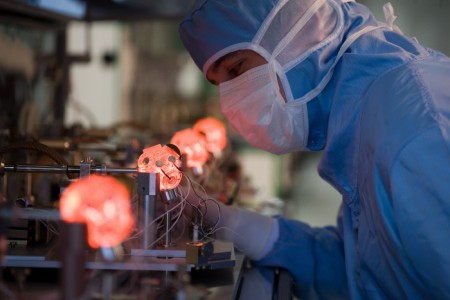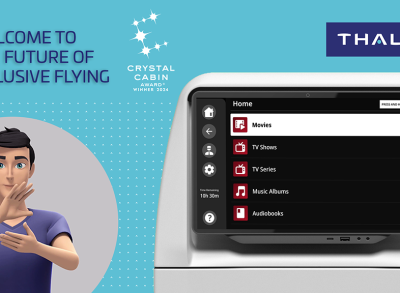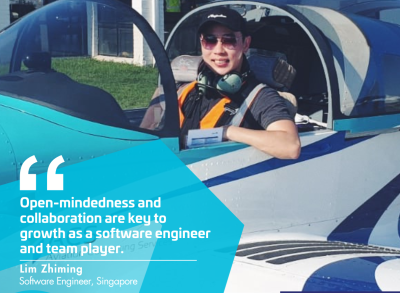A new approach to innovation
Alexis Dubrovin, Innovation Director at Thales Avionics, talks to Onboard about the company’s new vision for innovation. He details the reasons for this new direction – and explains the benefits.

Why has Thales launched a new innovation policy?
Our aim is to create a change in mindset by encouraging researchers to be more ambitious than targeting the “next generation to come”, broadening their scope of research in order to detect or invent new approaches that may lead to strongly positive breakthroughs.
Obviously, this activity is therefore more risky, : by saying that failure is an option, we are giving our researchers more freedom to unleash their creativity.
We also want to encourage our teams to rank their work in terms of its potential impact: to think about how their innovations can benefit both the client and Thales in the mid- and long-term.
How will you implement this model in practice?
The key is to spark creativity. Internally, we will continue to organize brainstorming and dialogue sessions between our various experts, using the Ecole des Mines creativity process, for instance. We always make sure we involve teams with different backgrounds and different visions, as this often delivers unexpected results with high potential. We have added internal contests, giving researchers “carte blanche” to innovate. The best ideas are awarded funds, allowing them to be developed further.
Will you change your financial approach?
Rather than uniquely investing in expensive projects that follow current trends, we will concentrate on smaller evaluative projects that have the potential to take us beyond today’s technologies. It’s a form of calculated risk that should pay off in the long term.
What about external partnerships?
We maintain a number of partnerships with academic institutions and laboratories, as well as supporting industry initiatives such as Clean Sky and SESAR.
In addition, we work directly with clients on disruptive technologies. This can either be at the request of a client or on our own initiative. For example, in recent years, we have joined forces with Airbus to develop an IMA (Integrated Modular Avionics) based on incremental certification, offering considerable cost savings in developments for new aircraft.
In the future, we will share our innovation initiatives even more closely with clients and suppliers.
Academic partnerships
Thales Avionics actively pursues three types of partnerships with the academic world, explains Christian Delaveau, R&T Cooperations Director for Thales’s Avionics division. Firstly, it supports research theses (25 different projects are currently underway). Secondly, it maintains strong links with key academic institutions, including funding a Chair at Mines ParisTech in Paris; supporting an Integrated Vehicle Health Management System programme at Cranfield University, UK; and backing the ALBATROS alliance (Alliance Bordeaux Institutes And Thales on Research in Avionics Systems), which unites several Bordeaux-based academic institutions to work on a range of research subjects. Finally, Thales Avionics has recently answered calls for tender to become a partner in three technological research institutes (IRTs, Institut de Recherche Technologique). The purpose of these institutions is to work on improving the technical maturity of innovations, and would thus offer Thales Avionics a boost in the domain of applied research.
Photo credit: ©Thales





